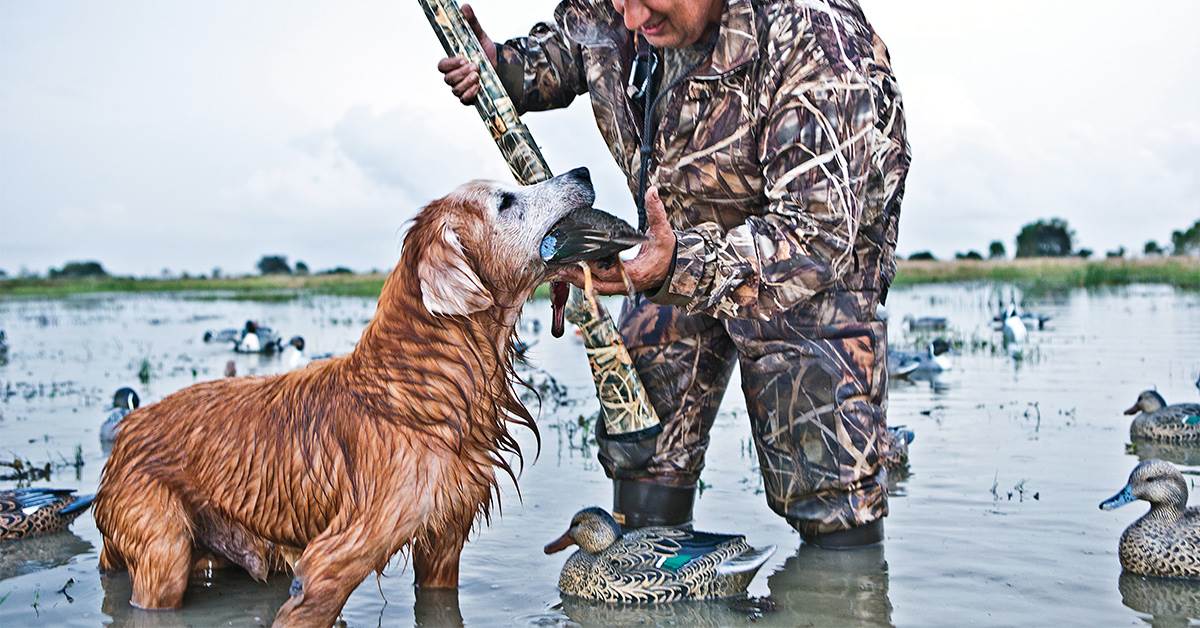Retrievers: The Re-Homed Retriever
How to find and adopt an older hunting dog
How to find and adopt an older hunting dog


The landscape of American dog ownership has changed dramatically in recent years. In the 1990s, fewer than 10 percent of dogs were obtained from shelters. Today, nearly 30 percent of dogs arrive in homes via that route. Adopting a dog from a shelter or rescue organization has become such a "thing," in fact, that it has led to the creation of a well-defined transportation network that moves dogs from shelters with high supply and low demand (typically in the South) to shelters with high demand and low supply (typically in the North).
The upshot is that far fewer healthy dogs are being euthanized these days. There's also some evidence that the "adopt, don't shop" mindset is contributing to a decline in the number of high-volume breeding operations known as puppy mills. It's hard not to view these as positive developments. Most Ducks Unlimited members are dog-lovers, and we want to see all dogs, regardless of provenance or pedigree, in a situation where they are happy, healthy, and appreciated.
Still, it's fair to ask what relevance this new model of dog ownership has to waterfowl hunters. Is it possible to find a capable retriever in a shelter or rescue situation? Nothing is impossible, but because hunters usually source their dogs with an eye toward specific, genetically inherited performance characteristics, you could make the argument that the odds are against it.
There are some exceptions, however. One is the possibility of adopting an older dog that has been retired from a commercial hunting operation. You just have to go into it with your eyes fully open to the fact that such a dog will likely be a part-time hunter and that you might only have his services for a couple of seasons.
Another nontraditional route that can bear fruit is looking for an older female field-trial veteran that has been serving as a brood matron but is now past breeding age. These dogs are typically very well-bred and have had some training but are priced far below the going rate for a comparable dog in her prime. This is the route that the eminent waterfowl biologist Dr. Richard Kaminski took to acquire his black Lab Terra when she was eight years old.
As Kaminski explains it, he looked around online, sent out feelers to several Lab breeders telling them he was in the market for an older dog, and eventually found Terra. They've now enjoyed three productive seasons together. "She's a canine machine," Kaminski says. "I wish I had one of her puppies!"
If the idea of acquiring an older dog appeals to you, don't be put off by concerns about the dog's ability to transition to a new home. You need to prepare for it, especially if you plan on turning a "kennel dog" into a "house dog." But as long as you give the dog time to adjust and avoid making any jarring changes to his regimen, you'll both be fine. The sporting breeds in general (and Labs in particular) are uncannily adaptable in this respect.
One of the best ways to cement your bond with a newly adopted older dog is to take him for long, on-lead walks. Dogs intrinsically appreciate any opportunity to explore their environment, and that appreciation will strengthen his feelings toward you. If you want to bring a bumper along and throw it for him a couple of times along the way, so much the better. Soon enough, he'll be locking his eyes onto yours with that look that says he would follow you anywhere.
Hunting Dog Rescue Organizations Field to Family Dogs in Austin, Texas, and KAMO in Tekamah, Nebraska, are two organizations devoted to "re-homing" dogs from commercial hunting operations. Both work with shooting preserves and hunting lodges to identify dogs that have been retired (or in some cases have washed out of training) and match them with appropriate owners. Even with their hunting days mostly behind them, these dogs have a tremendous amount to offer as family companions and sources of emotional support. For more information, visit fieldtofamilydogs.org or kamoinc.org.
Ducks Unlimited uses cookies to enhance your browsing experience, optimize site functionality, analyze traffic, and deliver personalized advertising through third parties. By continuing to use this site, you agree to our use of cookies. View Privacy Policy